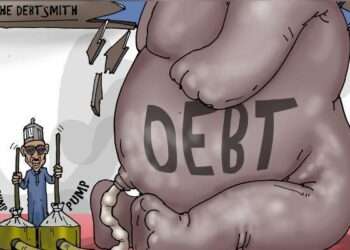The Ghana Cocoa Board’s (COCOBOD) recent downward revision of cocoa harvest projections for the 2024/2025 season has sparked concerns about the Ghanaian cedi’s stability.
Joe Jackson, Chief Executive Officer of Dalex Finance and a noted financial expert, has warned that the currency faces increased devaluation risks due to declining cocoa output.
Joe Jackson’s commentary highlights the direct link between cocoa revenues and Ghana’s economic stability. Reacting to COCOBOD’s second downward revision in 2024, Jackson stated, “The second downward revision of the anticipated cocoa harvest increases the risk of further devaluation of the cedi in the days ahead.”
Cocoa is a significant contributor to Ghana’s economy, accounting for a large share of foreign exchange earnings. A decline in harvest output threatens to reduce the inflow of foreign currency, placing added pressure on the already vulnerable cedi.
Revised Projections
COCOBOD has now reduced its harvest forecast for the upcoming season by an additional 5%, bringing the expected yield to approximately 617,500 tons. This follows an earlier 20% reduction in August, where the initial projection of 812,500 tons was cut to 650,000 tons.
The downward revisions stem from adverse weather conditions, particularly insufficient rainfall and the harmattan season. These factors have historically hampered cocoa production, resulting in lower yields and diminishing the sector’s economic contributions.
The harmattan, characterized by dry and dusty winds, is particularly damaging to cocoa crops, as it reduces soil moisture and impedes plant growth. The ongoing dry season has compounded these challenges, leaving many cocoa farmers struggling to meet production targets.
Such unfavorable conditions underscore the vulnerability of Ghana’s agriculture sector to climate variability. Cocoa farmers, especially smallholders who form the backbone of the industry, often lack the necessary resources to mitigate these impacts.
Economic Repercussions
Ghana’s reliance on cocoa as a major foreign exchange earner makes the sector’s performance pivotal to the economy. Declining cocoa output not only reduces export revenue but also limits the government’s ability to service its external obligations, including debts.
Joe Jackson emphasized that 2025 may bring even greater economic challenges, stating, “It looks like 2025 will be even more challenging than anticipated. #FastenYourSeatBelt #COCOBODMismanagement.”
This grim forecast aligns with concerns about how reduced cocoa revenues could strain Ghana’s fiscal position, leading to higher borrowing costs, reduced investor confidence, and a potential widening of the trade deficit.
The downward revision has also reignited criticism of COCOBOD’s management practices. Critics argue that the organization must adopt proactive measures to address systemic inefficiencies and improve resilience against climate shocks.
Steps such as investing in climate-smart agriculture, enhancing irrigation infrastructure, and providing farmers with access to improved seedlings and fertilizers are vital to boosting productivity.
Broader Implications for the Economy
The devaluation of the cedi has far-reaching consequences for the Ghanaian economy, including higher inflation and increased costs of imports. For businesses and households alike, this translates into a rise in the cost of living and reduced purchasing power.
Moreover, reduced cocoa earnings could impact government revenue, potentially leading to cuts in critical public spending. The agricultural sector, which employs millions, risks losing its competitive edge unless decisive interventions are made.
As the Ghana Cocoa Board navigates these challenges, it must prioritize long-term strategies to stabilize cocoa production. Addressing climate risks and ensuring consistent policy support for farmers are critical steps toward safeguarding the sector’s future.
Policymakers also need to consider diversifying the country’s export base to reduce over-reliance on cocoa. While cocoa remains integral to Ghana’s identity and economy, the risks associated with climate change and market volatility underscore the need for broader economic resilience.
As the nation braces for what may be a difficult 2025, proactive measures will be key to stabilizing the currency and ensuring long-term economic sustainability.
READ ALSO: Tetteh Calls for Consistency, Legal Accountability in EC’s Actions




















